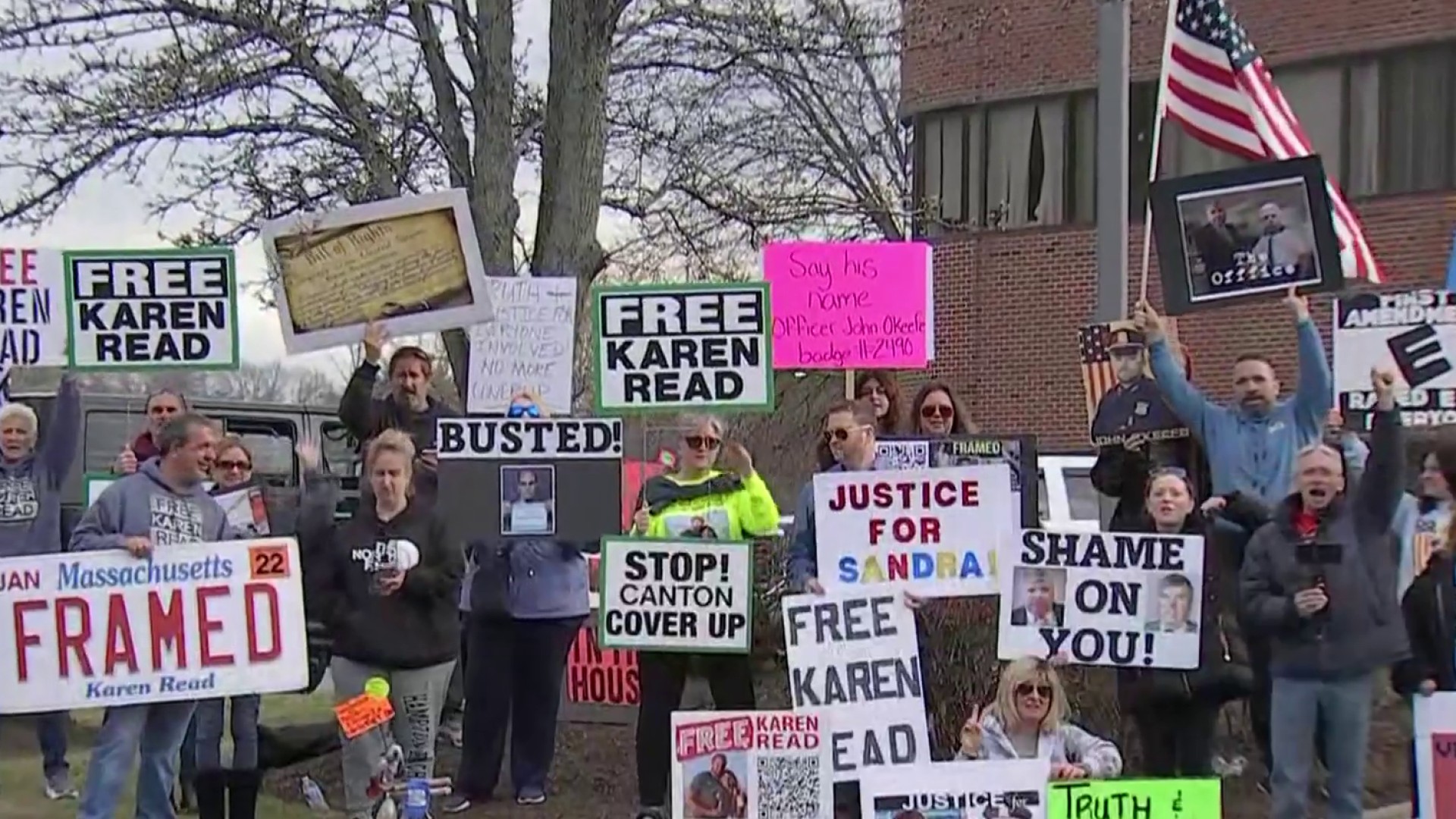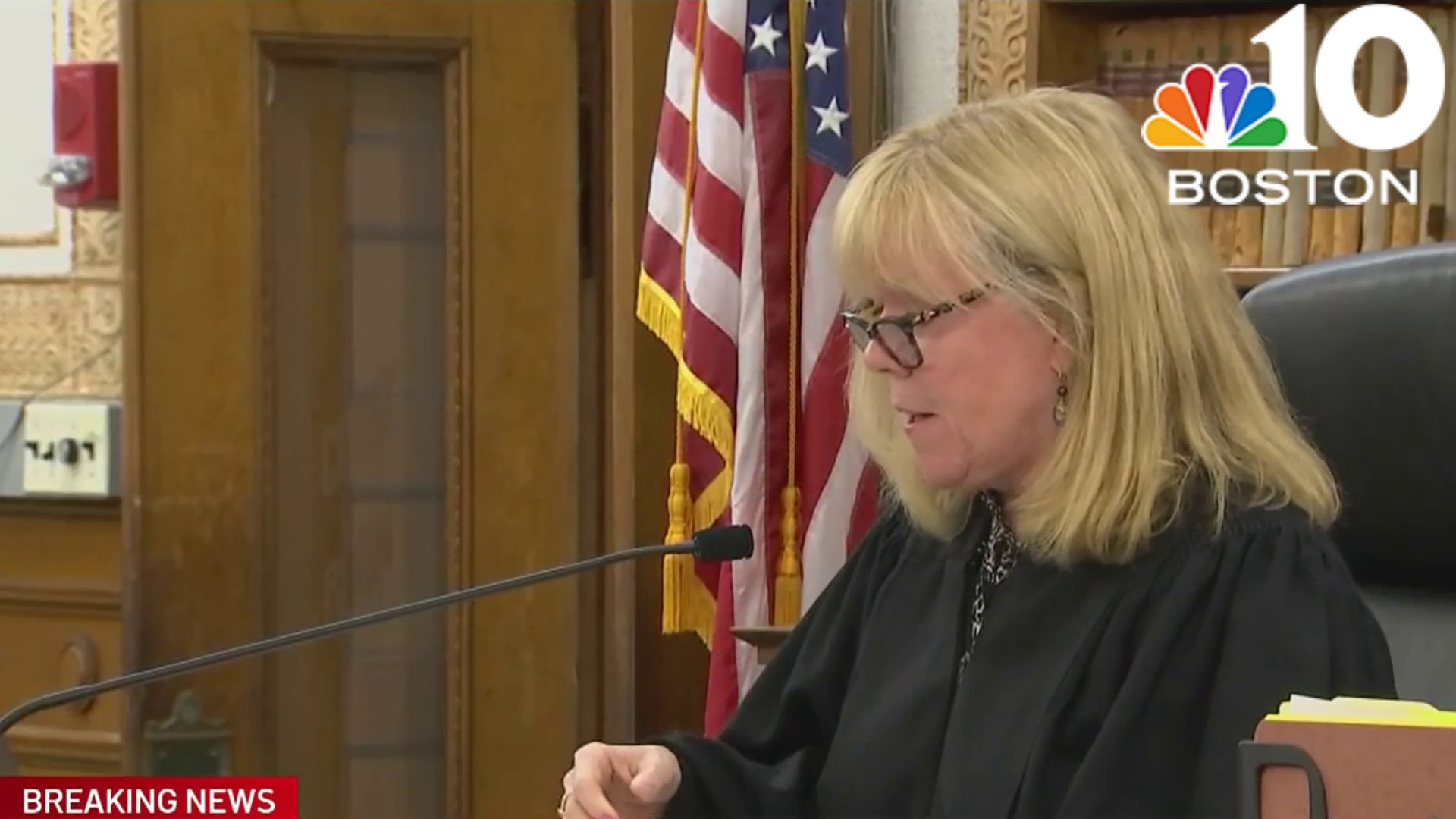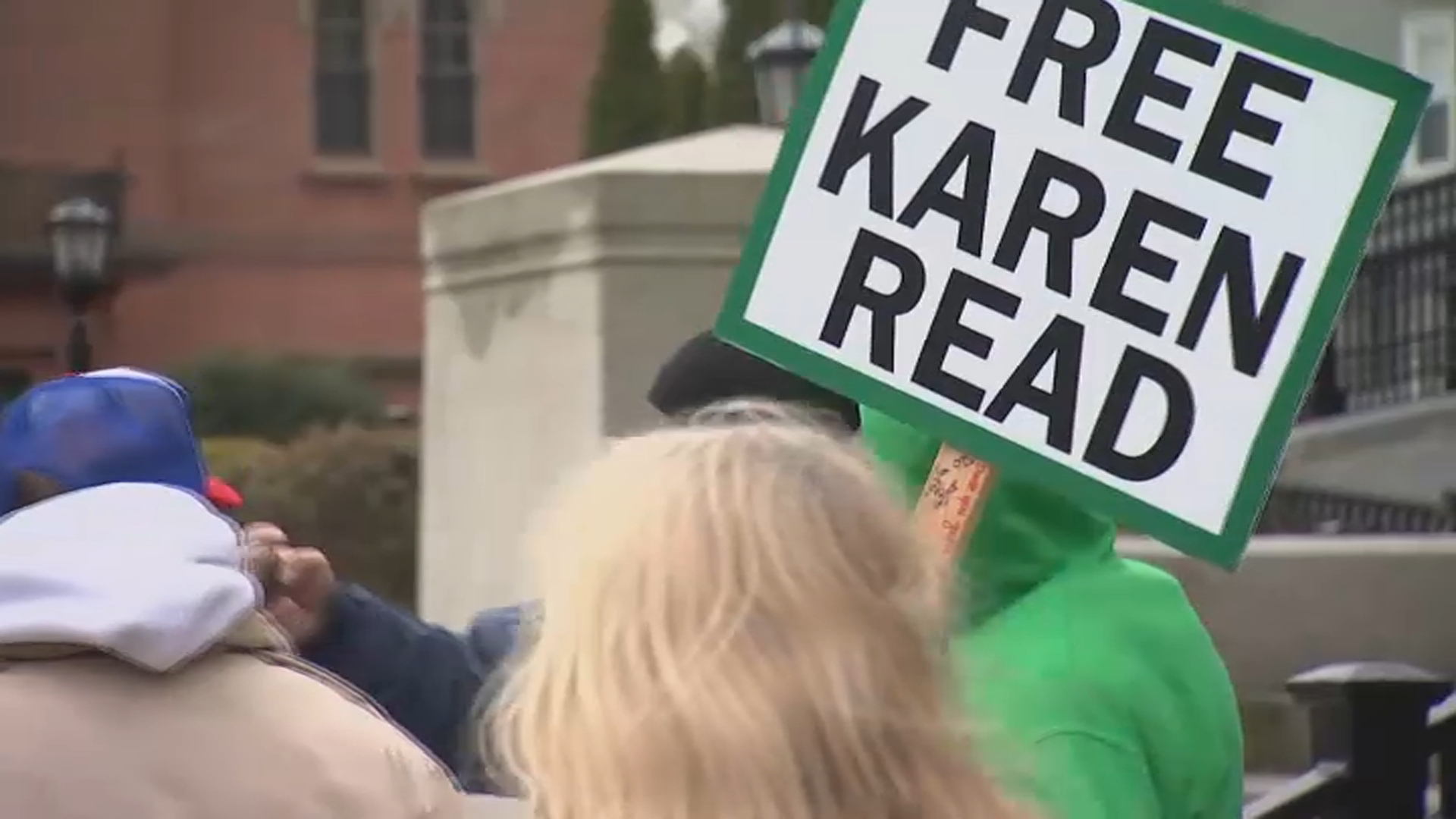A Massachusetts court has released over 100 pages of documents, largely redacted, related to the Karen Read case, shedding light on issues defense attorneys have raised about grand jury proceedings.
Read is charged with second-degree murder in the death of John O'Keefe, her Boston police officer boyfriend, who was found unresponsive outside a Canton home on Jan. 29, 2022. Prosecutors say she hit O'Keefe with her SUV, while Read and her attorneys say she is being framed amid a massive coverup.
WATCH ANYTIME FOR FREE
>Stream NBC10 Boston news for free, 24/7, wherever you are. |
Norfolk Superior Court Judge Beverly Cannone agreed Tuesday to unseal some of the documents requested by The Boston Globe. Many of the pages released Wednesday lay out what's behind the defense's argument that Read's indictment should be thrown out — a motion Cannone has already denied.
Read's attorneys say the grand jury that indicted Read was misled by prosecutors with the Norfolk County District Attorney's Office.
Get updates on what's happening in Boston to your inbox. Sign up for our >News Headlines newsletter.
"A majority of the witnesses who testified before the grand jury were not percipient witnesses to any of the events in question and were instead called for the purpose of testifying to remote and irrelevant 'bad character' and propensity evidence prejudicing the jury against Ms. Read, misleading the grand jury, confusing the issues, and wasting time," her attorneys wrote. "To be clear, not a single witness testified that they observed Ms. Read strike O'Keefe with her vehicle, injure him in any way, or otherwise drive erratically on the night in question."
"We've got a circumstantial evidence case as to how he met his death, and so it'll be both the physical evidence that the experts will testify to, as to what indicates that he was or was not hit by the vehicle," NBC10 Boston legal analyst Michael Coyne said Wednesday. "We will also have, obviously, the examination of a lot of the cellphones and the like to see what evidence there is there that supports whether he was hit by the vehicle or wasn't."
The defense says Trooper Michael Proctor — whom sources tell NBC10 Boston is under investigation by Massachusetts State Police in connection with the Read case — did not make clear to grand jurors that O'Keefe's manner of death was officially undetermined.
"At the Commonwealth's direction, Trooper Proctor was instructed to read the cause of death determination from O'Keefe's death certificate into the record, namely 'blunt impact injuries of head and hypothermia,' suggesting that the cause of death was generally consistent with the Commonwealth's theory of the case," Read's attorneys wrote. "Intentionally withheld from the grand jury, however, is the fact that O'Keefe's death certificate also states that the manner of death 'could not be determined.'"
While prosecutors cited a precedent that the words "homicide," "suicide," or "accident" on a death certificate should be excluded in court to avoid prejudicing a jury, according to the defense, the opposite does not hold true.
"Notably missing from the list of words on a death certificate that need to be excluded from a criminal trial is a finding that the manner of death 'could not be determined,'" the defense wrote. "This finding was exculpatory, and yet was intentionally withheld from the grand jury.
Read and O'Keefe were out drinking Jan. 28, 2022, with a group of people including Boston Police Officer Brian Albert. Albert's sister-in-law, Jennifer McCabe, was also in that group. Members of the group went back to Albert's house on Fairview Road, and Read says she dropped O'Keefe off there and went home.
Read called McCabe early the next morning after O'Keefe did not return home. They and another woman, grand jury witness Kerry Roberts, went looking for him, finding him in the snow outside Albert's house. He was brought to a hospital, where he was pronounced dead.
The defense has long said McCabe used her phone to search "Hos [sic] long to die in cold" around 2:30 a.m. -- something prosecutors have claimed she actually searched hours later, after O'Keefe had been found.
In the documents released Wednesday, Read's team argued prosecutors "intentionally and recklessly deceived the grand jury by presenting an incomplete extraction of Jennifer McCabe's cell phone as an exhibit," omitting reference to that search.
The court also released a document outlining prosecutors' opposition to Read's motions to dismiss indictments and disqualify the Norfolk County District Attorney's Office. A passage that is both preceded and followed by long redactions responds to the argument about McCabe's search.
"Further, the Commonwealth did not withhold exculpatory evidence pertaining to Jennifer McCabe's google searches from the grand jury," prosecutors wrote. "The purported 'incriminating' google search did not appear in the initial download given the version of Cellebrite software that existed at that time."
Read's team has argued Proctor — the Massachusetts State Police trooper who served as the case's lead investigator — and Detective Sgt. Michael Lank of the Canton Police Department have longstanding relationships with the Albert family that were not disclosed to the grand jury.
In the newly-unsealed documents, the court released photos the defense shared with the media last year showing Proctor with members of the Albert family as far back as 2012. They also outline Read's attorneys' allegation that prosecutors "intentionally misled" the grand jury by allowing another trooper, Yuriy Bukhenik, "to falsely insinuate to the grand jury that he and Trooper Proctor had never met" Brian Albert's brother, Chris Albert, or Chris' wife, Julie — both of whom testified they were at the restaurant and bar with the group in the hours before O'Keefe's death.
"Because of Trooper Proctor's personal bias and longstanding relationship with the Alberts, Trooper Proctor consistently testified before the grand jury in a manner that distorted the facts to the grand jury in what can only be described as a concerted effort to shield his longtime friends from criminal liability and ensure the grand jury indicted Ms. Read," the defense wrote.
Read's team called Lank "a personal friend of the Albert family," citing a civil case against Lank related to a 2002 incident involving Chris and Julie Albert, which documents show was settled out of court in 2007.
In Lank's grand jury testimony, the defense argues he did not make his connection to the Albert family clear — or the fact that the Canton Police Department called in state police due to the conflict raised by Brian Albert's brother, Kevin, working for the department.
"Detective Sergeant Lank falsely implied to the grand jury that the Canton Police Department 'lost jurisdiction' because the State Police always respond to investigate homicides and withheld the fact that the agency he works for, the Canton Police Department, was conflicted off of the case," the defense wrote. "If Detective Sergeant Lank and Trooper Michael Proctor had been honest about their longstanding relationship with the Alberts, the grand jury would have been extraordinarily skeptical of this entire investigation, particularly given the fact that Detective Sergeant Lank and the Canton Police Department remained involved in the case in the hours and days discovering the agency was conflicted."
Specifically, the defense refers to a call McCabe made to police at 9 a.m., about three hours after she spoke with officers responding to the home after O'Keefe was found. Lank wrote in a report that he and another officer returned to Brian Albert's home at McCabe's request.
"MCCABE told us that she recalled something that she was not sure if we were aware of. She said that when READ was driving around with her and ROBERTS looking for the victim, she said something to the effect of 'I hope I didn't hit him,'" Lank wrote in the report. "MCCABE told us that she made these statements again at the scene when the victim was discovered. She thought that READ may have made these statements in front of a police officer, but she was not sure."
"Significantly, the Commonwealth failed to elicit the fact that Sergeant Lank is a personal friend of the Albert family (which includes Jennifer McCabe) and that Detective Sergeant Lank and the Canton Police Department were already supposed to have been conflicted off the case, making it completely inappropriate for Sergeant Lank to conduct any further interviews with his longtime family friends," the defense wrote.
In response to the motion to dismiss indictments, prosecutors wrote, "Despite the defendant's narrow focus into Trooper Proctor, he is not an essential witness for the Commonwealth. All of his investigative work occurred in the company of or under the supervision of other law enforcement officers."
Coyne says it would have been extraordinary for the judge to toss out the indictments, but depending on which evidence presented to the grand jury will actually be allowed at trial, Read could have a shot at reasonable doubt.
"It really does call into question whether the investigation was as thorough and independent as it should have been," he said.
Read's trial is set to start Tuesday.




